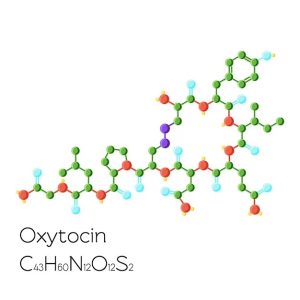SHHHH!!! I’m Microdosing…

Intentional Ways to Boost Your Well-Being
Imagine if you could sprinkle a little extra joy, calm, or connection into your day—not by changing your whole lifestyle, taking mind-altering drugs, but through small, intentional actions. This is the concept of “microdosing happiness” by engaging your body’s natural feel-good chemicals: dopamine, serotonin, oxytocin, endorphins, and more. Each plays a unique role in creating a sense of well-being, and with simple habits, you can activate them throughout your day.
Oxytocin, often called the bonding hormone, strengthens connections with loved ones. Hugs, acts of kindness, and even thinking of cherished memories can give you a dose. I call this “microdosing”—whether it’s a quick hug or a moment spent savoring affection from a pet.
Dopamine fuels motivation and pleasure. Celebrate small wins, set achievable goals, or indulge in a bit of dark chocolate to give yourself a boost. Serotonin, your mood stabilizer, loves activities like basking in sunlight, practicing gratitude, or walking in nature.
Endorphins, the body’s natural painkillers, are released through laughter, exercise, and even spicy foods. And don’t forget about GABA, the calming neurotransmitter, which you can enhance through yoga, meditation, or deep breathing.
Even short bursts of intentional activity—listening to uplifting music, practicing Havening Techniques™ with self-soothing touch, or savoring a good belly laugh—can transform your mood. Whether it’s a microdose (like a single hug) or a macrodose (an afternoon of joyful connection at a big event), these actions make a difference. Why not try a small dose today?
In today’s busy world, it’s easy to overlook the small moments that can bring us happiness. But the science behind our brain’s neurotransmitters shows us that even minor actions can have major effects on our well-being. By intentionally “microdosing” these feel-good chemicals, we can bring joy and connection into our everyday lives.
One of the easiest ways to microdose happiness is by activating oxytocin, often referred to as the “bonding hormone.” Oxytocin helps us feel close to others and fosters trust and love. Simple actions like hugging, petting a dog, or expressing gratitude can release oxytocin. Even thinking about someone you love or reminiscing about a happy memory can give you a small but meaningful boost.
Serotonin, often called the “happiness molecule,” plays a significant role in mood regulation. To increase serotonin, spend time in the sunlight, take a mindful walk in nature, or practice gratitude by writing down things you’re thankful for. These simple acts can help stabilize your mood and promote emotional well-being.
Endorphins, the body’s natural painkillers, are associated with feelings of euphoria. They’re released during activities like laughing, exercising, or even eating spicy foods. A good workout or a fun comedy show can leave you feeling energized and uplifted.
GABA (gamma-aminobutyric acid) is a calming neurotransmitter that helps reduce anxiety and promotes relaxation. You can increase GABA levels by practicing meditation, doing deep breathing exercises, or enjoying fermented foods like yogurt or kimchi. These actions help create a sense of peace and calm in your daily life.
The beauty of microdosing happiness is that it doesn’t require huge investments of time or money. It’s about finding joy in the small things—a heartfelt conversation, a walk in the park, or a moment of laughter with friends. Whether you’re microdosing with a single hug or macrodosing at a big celebration, these intentional actions help create a life rich with connection and joy.
Dopamine, another key player in our brain chemistry, is all about motivation and reward. When you complete a small task, check something off your to-do list, or enjoy a favorite treat, your brain rewards you with a surge of dopamine. This chemical encourages us to keep striving and enjoying life’s pleasures.
We love hearing from you, please feel free to leave your comments below.
With Gratitude,
Rus Devorah


